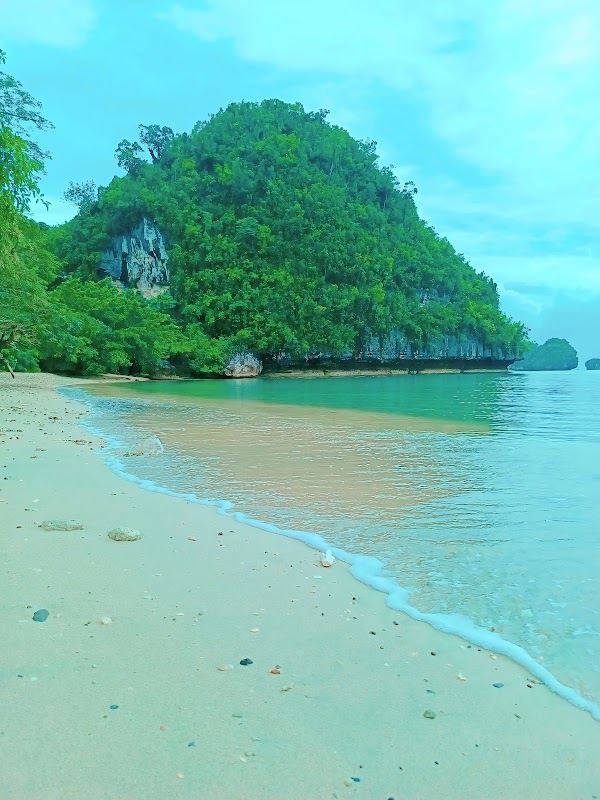
Casting Off at Guiuan's Local Fishing Festivals: Adventure, Culture, and Community
Experience the vibrant local fishing festivals of Guiuan, Eastern Samar, where the sea's pulse meets cultural tradition. Perfect for travelers eager to engage with coastal life, these festivals blend hands-on adventure with rich community spirit.
Wear Non-Slip Footwear
The coastal festival grounds can be wet and slippery with morning dew and sea spray. Choose footwear that grips well to avoid falls while exploring.
Hydrate Often
Tropical heat and physical activity around the shore increase dehydration risks. Carry water and sip regularly during festivities.
Arrive Early
To catch the peaceful early-morning scenes and avoid larger crowds, visit the festival at dawn when the sea calms and colors come alive.
Respect the Fishermen’s Space
Fishermen work with sharp tools and unpredictable tides; maintaining a respectful distance ensures your safety and honors local customs.
Casting Off at Guiuan's Local Fishing Festivals: Adventure, Culture, and Community
Guiuan, Eastern Samar offers more than just coastal scenery; it hosts vibrant local fishing festivals where tradition meets adventure. These festivals, occurring mainly from May through August, invite locals and travelers alike to witness the dynamic interplay between the sea and its people—an experience that’s equal parts cultural immersion and practical exploration.
The central event revolves around the community’s deep-rooted connection with fishing. Villagers launch colorful boats into agitated waves, nets heavy with the ocean's bounty, while the rhythmic beat of drums and laughter fill the salty air. It’s a practical display of both skill and endurance, with fishermen relying on techniques passed down through generations, riding the wind and currents that dare to challenge every cast.
For visitors, the festival is not only a lively cultural encounter but also a chance for active participation. Early mornings are best—the sea is peaceful, the sun just tipping the horizon, casting a pale golden light that dances on the water’s surface. Walking along the shores, you’ll find market stalls laden with freshly caught fish, ready for traditional cooking demonstrations offering flavors as bold as the sea itself.
Terrain around Guiuan’s coastal villages is generally flat but can be slippery in spots due to morning dew and sea spray—footwear with good grip is recommended. The festival venues are accessible within short walks from local lodging, making it a manageable day excursion for any traveler.
Hydration is crucial; the tropical climate pushes you to stay ahead of thirst, especially when engaging with the sun-drenched beach crowds or attempting to capture the festival’s vibrant motion on camera. Planning your trip during weekdays may mean quieter moments with locals, while weekends bring higher energy and larger gatherings.
Keep a respectful distance from the fishermen at work—they are fiercely protective of their craft, and the sea commands both respect and caution. Observing without intruding lets the natural rhythm of the festival reveal itself, the waves and wind shaping the pace.
Overall, Guiuan’s fishing festivals offer an unfiltered glimpse into a coastal way of life shaped by the sea’s demands. It’s a call to those who seek connection with culture and nature, on shores where the ocean is more than a backdrop—it is a living, breathing force.
Nearby Trips
All Adventures
Boat Charters
Water Activities
Adventures near Guiuan, Eastern Samar
Discover the unique and memorable adventures that make Guiuan, Eastern Samar special.
Frequently Asked Questions
When exactly do the fishing festivals in Guiuan take place?
The festivals primarily run from late May through August, coinciding with the peak fishing season when the weather is warmer and the sea conditions encourage large catches.
Are the fishing festivals family-friendly?
Yes, these festivals welcome visitors of all ages. The lively atmosphere includes stalls with local food and crafts, making it an educational and entertaining experience for families.
Can visitors participate in fishing activities?
Visitors can observe and occasionally join in community-sanctioned activities such as net casting demonstrations, but actual fishing is usually reserved for local fishermen due to safety and tradition.
What wildlife might I see during the festival days?
Expect to see coastal birds like kingfishers and egrets, as well as marine life near the shore including crabs and small fish darting through tidal pools stirred by fishing nets.
How accessible are the festival sites for travelers with mobility challenges?
Festival venues are mostly on flat coastal terrain, but uneven sand and occasional muddy patches may require assistance. It's advisable to check locally for specific accessibility support.
Is there a historical or cultural significance behind these fishing festivals?
The festivals celebrate Guiuan’s centuries-old reliance on the sea as a food source and livelihood. They highlight traditional fishing methods preserved through generations, reflecting the community's respect for marine resources.
Recommended Gear
Sturdy Sandals or Waterproof Shoes
Protects feet from slippery surfaces and saltwater exposure during coastal festival events.
Wide-brimmed Hat
Provides crucial sun protection during the open-air morning and afternoon activities.
Reusable Water Bottle
Staying hydrated is vital under tropical heat and while moving between festival sites.
Lightweight Rain Jacket
Useful for sudden tropical showers common in the festival months.
Local Insights
Hidden Gems
- "Biri Island Viewpoint - a quiet spot overlooking smaller fishing coves offering unique perspectives of boat activity."
- "Talon-Talon Beach - a lesser-known, calm cove where you can see local fishermen preparing nets away from the festival crowds."
Wildlife
- "Philippine sea eagles soaring overhead"
- "Coastal mangrove crabs scuttling among roots"
- "Noisy kingfishers perched on low branches"
History
"Guiuan’s fishing festivals echo a tradition that dates back centuries, representing more than livelihood—they are cultural rites marking seasonal cycles and fostering communal bonds."
